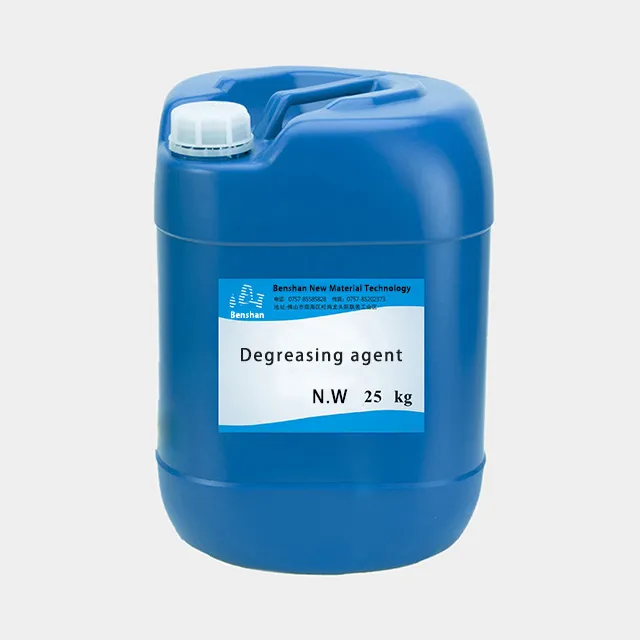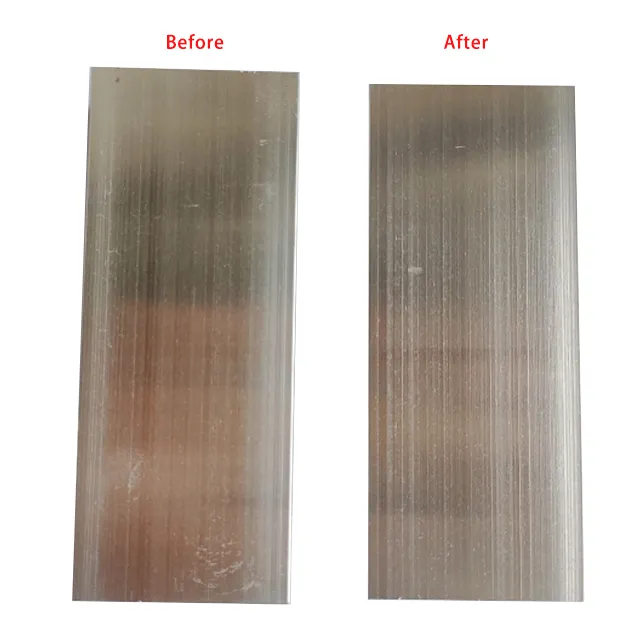
Are the ingredients in Oil degreasing additive harmful to the environment?
2024-05-20 15:30
In the production and processing of aluminum products, Oil degreasing additive is a commonly used chemical that is widely used to remove oil stains on the surface of aluminum products to improve surface quality and processing efficiency. However, people have some doubts and concerns about whether the ingredients of Oil degreasing additive are harmful to the environment.
Today, we will delve into this issue, explore the environmental impact of Oil degreasing additive, and focus on the balance between production and environmental protection.
1. Main ingredients of Oil degreasing additive
First, we need to understand the main ingredients of Oil derosination additive. Generally speaking, Oil derosination additive mainly includes organic solvents, surfactants, chelating agents, corrosion inhibitors and other ingredients. These ingredients mainly play the role of dissolving and removing oil stains, surface activity, and preventing corrosion. They are key components in the oil degreasing process.
2. Environmental impact of organic solvents
Among them, organic solvent is one of the main ingredients in Oil derosination additive, but it is also one of the ingredients that is potentially harmful to the environment. Organic solvents mainly play the role of dissolving oil stains during oil degreasing treatment, but some organic solvents may be volatile and will be released into the air, affecting air quality. In addition, organic solvents may enter water bodies through wastewater discharge, causing pollution to the water environment and affecting the health of aquatic organisms and ecosystems.

3. Environmental impact of surfactants
In addition to organic solvents, surfactants in oil degreasing additives may also have an impact on the environment. Surfactants mainly play the role of reducing surface tension and improving wettability, but some surfactants may be biologically toxic and cause harm to aquatic organisms and ecosystems. In addition, surfactants may also cause pollution to soil and groundwater, affecting soil quality and the sustainable use of groundwater resources.
4. Environmental Impact of Chelating Agents and Corrosion Inhibitors
In addition to organic solvents and surfactants, chelating agents and corrosion inhibitors in oil degreasing additives may also have an impact on the environment. Chelating agents are mainly used to complex metal ions to prevent corrosion on metal surfaces, but some chelating agents may be toxic to aquatic organisms. Corrosion inhibitors are mainly used to prevent corrosion on metal surfaces, but some corrosion inhibitors may be toxic and cause pollution to the water environment and soil.

5. Environmental measures and alternatives
Faced with the possible impact of Oil degreasing additive on the environment, we need to adopt a series of environmental protection measures and alternatives. For example, low-volatile organic solvents can be used to replace high-volatile organic solvents to reduce the volatilization and release of organic solvents; non-toxic and harmless surfactants and chelating agents can be selected to reduce harm to aquatic organisms and ecosystems; can be developed And use environmentally friendly degreasing agents to reduce environmental pollution.
Conclusion: Balanced development and sustainable development
In summary, the ingredients of Oil derosination additive may have a certain impact on the environment, but through reasonable environmental protection measures and alternatives, its impact on the environment can be minimized and a balance between production and environmental protection can be achieved.
In future development, we should continue to explore and promote environmentally friendly Oil derosination additive, promote the sustainable development of the industry, and achieve coordinated development of economy, society and environment.








